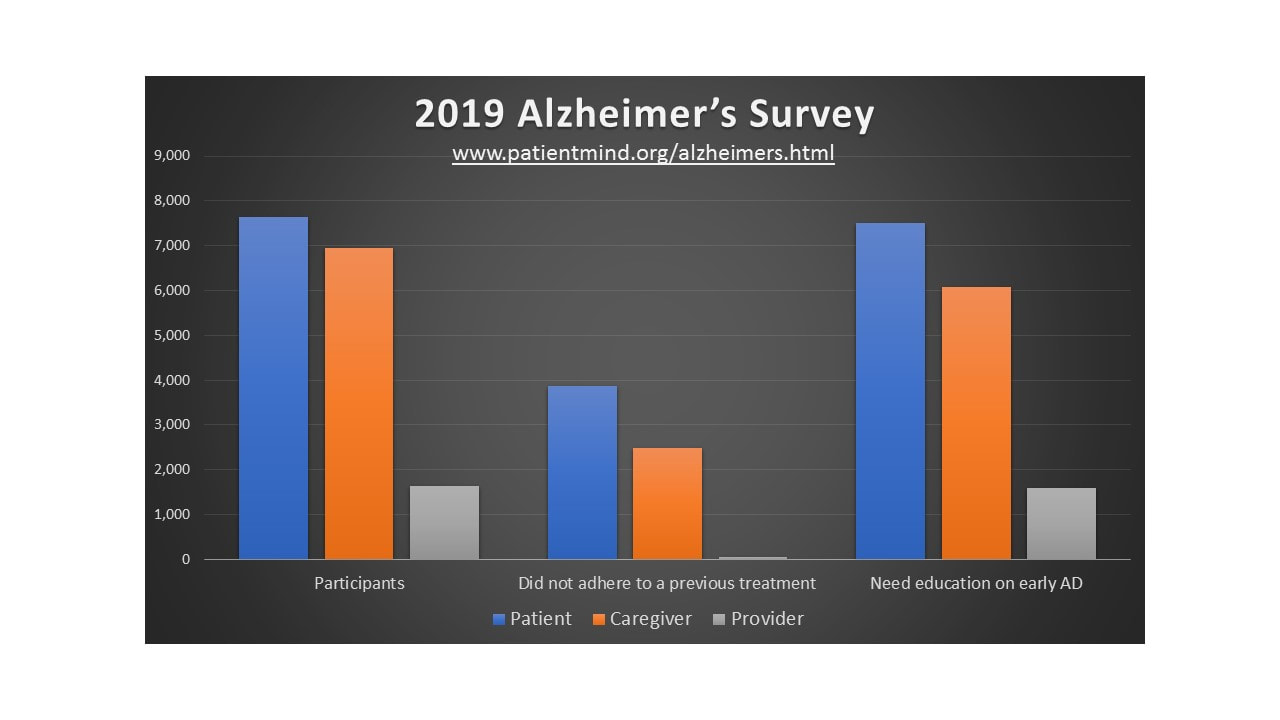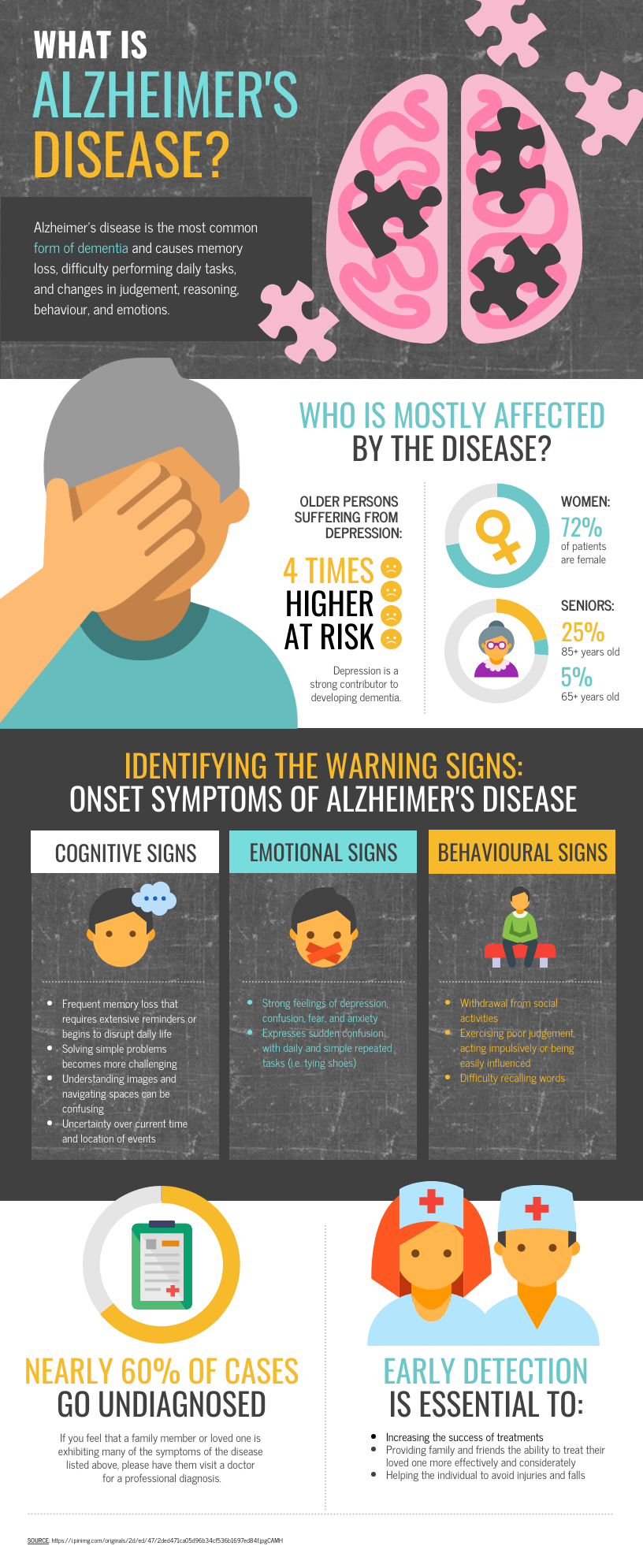CONQUERING MY EVEREST: OUTFITTING THE PATIENT
Resources:
Communication Guide
Communication Guide
The Science on Early Alzheimer's Disease and One's Personal Journey
Preparing for the Impact of Early Alzheimer's Disease
Topic: Dialogue and Communication During the First DOCTORS Visit
The education above is made possible by a grant from Biogen.
Alzheimer's Disease: Learning From Real Stories
Chances are you are here because you are concerned about yourself or a loved one and Alzheimer's Disease. Take time to read this short story. It will help you understand the personal side of Alzheimer's Disease. Important learning points and videos are found throughout. Please make an appointment today with your Primary Care doctor and use this as a communication guide to discuss your concerns.
Losing a Parent Made Me a Better Mother
By:
Brittany Jedrzejewski
Originally Published on
AustinMoms.com
Brittany's Blog
This fall marks the eleventh anniversary of my dad’s death. In honor of him, and to raise awareness for Alzheimer’s, I humbly share my story.
I noticed my dad having trouble finding the right words and stumbling when speaking. My paternal grandma died from complications from Alzheimer's, yet it seemed impossible that my proud, self-sufficient, knowledgeable, precious dad who called me his Pidge could be sick. This is the man who I look like, act like, confide in, who is always there for me, is completely honest with me. Whenever he heard my voice he could tell with 100% accuracy where my heart was. He called me his hiking and tennis partner. Every chance we got, and especially during visits home from college, we would play tennis together and grab a cherry limeade at Sonic afterwards. His car smelled like the original flavored Chap Stick and Juicy Fruit gum.
My dad's illness was officially diagnosed as Alzheimer's. The man who always made everyone feel like the most important person in the room was no longer himself. The beautiful yet heart wrenching thing is that his eyes never lost recognition. His beautiful blue eyes pleaded with me to love him, to help him. He eyes always conveyed sorrow at my pain. Continue reading below
Brittany Jedrzejewski
Originally Published on
AustinMoms.com
Brittany's Blog
This fall marks the eleventh anniversary of my dad’s death. In honor of him, and to raise awareness for Alzheimer’s, I humbly share my story.
I noticed my dad having trouble finding the right words and stumbling when speaking. My paternal grandma died from complications from Alzheimer's, yet it seemed impossible that my proud, self-sufficient, knowledgeable, precious dad who called me his Pidge could be sick. This is the man who I look like, act like, confide in, who is always there for me, is completely honest with me. Whenever he heard my voice he could tell with 100% accuracy where my heart was. He called me his hiking and tennis partner. Every chance we got, and especially during visits home from college, we would play tennis together and grab a cherry limeade at Sonic afterwards. His car smelled like the original flavored Chap Stick and Juicy Fruit gum.
My dad's illness was officially diagnosed as Alzheimer's. The man who always made everyone feel like the most important person in the room was no longer himself. The beautiful yet heart wrenching thing is that his eyes never lost recognition. His beautiful blue eyes pleaded with me to love him, to help him. He eyes always conveyed sorrow at my pain. Continue reading below
Continue ReadingAfter many hard years, my dad had begun to lose his ability to swallow and developed pneumonia, and a week before he died, we spent the most beautiful time together. My dad is the author of 13 books and I sat by his bed and read one of his books to him. I said the Rosary with him. I brought him outside in his wheelchair and held his hand.
Right after he died, a nurse stopped me and said, "You must be Charlie's daughter. You look just like him." That statement was such a gift to me and I knew at that instant how precious it was. In reflecting on his disease and death, I am astounded at how quickly years pass. In this time of reflection, what comes to my mind is the importance of legacy. It carries so much more meaning for me now. It carries a responsibility. A responsibility and desire to continue his love through my kids. Beyond missing my dad personally, there are times my heart hurts knowing my dad isn’t alive to teach my kids about his greatest love, the outdoors. So today, as I write, I realize how much my dad’s death has brought me wisdom. Things I might have taken for granted or not realized or tried, are clear to me. And these are the things I am teaching my kids. Make memories and experience life together. In place of my dad, it was my brother who took my 13-year old son on his first deer hunt. That makes me so very happy. They are forming a precious, coming-of-age memory together. My kids and I hike together. For my son’s tenth birthday, I took him backpacking. Disconnecting with things and connecting with yourself through nature is a great place to start.
Develop relationships with the precious people around you. My dad taught me the treasure of a hand written letter. Amid all of our electronic communication, there’s a special reflection that goes into your pen meeting the paper. I write letters to my kids, and I ensure they write thank you notes by hand. Talk about hard things, like death and sickness like Alzheimer’s. I made a promise to myself, and my kids, that I will always be honest with them. It’s very tempting to want to keep them in a safe little bubble. Yet I try to be approachable, available and honest. It’s okay to talk about the people you cherish who’ve died. We talk about “Charlie” all the time. |
Learning Points
|
Being present. This is a big work in progress for me. Yet I understand well that all we have is this miraculous moment. One of the ways my dad did this was participating in causes he was passionate about, like the environment and water quality.
You can teach yourself anything. My dad was a self-taught outdoorsman. I teach my kids about hiking, whittling, backpacking and camping, and fishing. I challenge myself with things my dad taught me, but I never did on my own (baiting a hook, taking a catfish off a hook, filleting a fish). And I encourage my kids the power of teaching yourself.
My dad’s passion lives in me, and now through my kids as well. So today, in honor of my dad and all those affected by Alzheimer’s, make one or several of these things a priority for you and your kids. I promise will be filled up and make legacies of your own.
“I had an inheritance from my father, it was the moon and the sun. And though I roam all over the world, the spending of it’s never done,” Ernest Hemingway.
You can teach yourself anything. My dad was a self-taught outdoorsman. I teach my kids about hiking, whittling, backpacking and camping, and fishing. I challenge myself with things my dad taught me, but I never did on my own (baiting a hook, taking a catfish off a hook, filleting a fish). And I encourage my kids the power of teaching yourself.
My dad’s passion lives in me, and now through my kids as well. So today, in honor of my dad and all those affected by Alzheimer’s, make one or several of these things a priority for you and your kids. I promise will be filled up and make legacies of your own.
“I had an inheritance from my father, it was the moon and the sun. And though I roam all over the world, the spending of it’s never done,” Ernest Hemingway.
In Alzheimer's Disease Research (What Can I Do Now?)
Elderly people with diets rich in flavonols - a group of antioxidants found in fruits, vegetables, and tea - may be less likely to develop Alzheimer’s disease, a new study suggests.
Researchers followed 921 people without dementia for about six years, starting when they 81 years old, on average. During the study, 220 people were diagnosed with probable Alzheimer’s disease.
People who had the most flavonols in their diet were about half as likely to develop Alzheimer’s than those who consumed the least, the study found.
“Eat your fruits and vegetables, particularly dark leafy greens, and drink some tea every now and again,” said lead study author Dr. Thomas Holland of Rush University in Chicago.
“A healthy diet that contains various fruits and vegetables is critical for continued health, especially brain health,” (Holland).
Flavonols are a type of flavonoid, phytochemicals found in plant pigments that are known to have antioxidant and anti-inflammatory properties, researchers write in Neurology. While some previous research has linked flavonoids in general to a lower risk of Alzheimer’s disease, less is known about the impact of flavonols specifically.
Overall, people with the highest flavonol consumption were 48% less likely than those with the lowest to develop Alzheimer’s disease during the study period.
The study wasn’t designed to prove whether or how different foods might impact the development of Alzheimer’s disease.
Still, the results add to evidence suggesting that flavonols might be one way people can try to minimize their risk, said Dr. Glen Finney, director of the Geisinger Memory and Cognition Program in Wilkes Barre, Pennsylvania.
“Eating a healthy and diverse diet along with good socialization, physical exercise and keeping mentally active are important for brain health and can make a difference,”
“Keeping normal blood sugar levels and blood pressure on the low end of normal range are also important for brain health. While dementia is an increasing risk as we age, it isn’t inevitable and there are things people can do to reduce their risk.” (Finney)
SOURCE: Reuters Health and Neurology, online January 29, 2020.
Researchers followed 921 people without dementia for about six years, starting when they 81 years old, on average. During the study, 220 people were diagnosed with probable Alzheimer’s disease.
People who had the most flavonols in their diet were about half as likely to develop Alzheimer’s than those who consumed the least, the study found.
“Eat your fruits and vegetables, particularly dark leafy greens, and drink some tea every now and again,” said lead study author Dr. Thomas Holland of Rush University in Chicago.
“A healthy diet that contains various fruits and vegetables is critical for continued health, especially brain health,” (Holland).
Flavonols are a type of flavonoid, phytochemicals found in plant pigments that are known to have antioxidant and anti-inflammatory properties, researchers write in Neurology. While some previous research has linked flavonoids in general to a lower risk of Alzheimer’s disease, less is known about the impact of flavonols specifically.
Overall, people with the highest flavonol consumption were 48% less likely than those with the lowest to develop Alzheimer’s disease during the study period.
The study wasn’t designed to prove whether or how different foods might impact the development of Alzheimer’s disease.
Still, the results add to evidence suggesting that flavonols might be one way people can try to minimize their risk, said Dr. Glen Finney, director of the Geisinger Memory and Cognition Program in Wilkes Barre, Pennsylvania.
“Eating a healthy and diverse diet along with good socialization, physical exercise and keeping mentally active are important for brain health and can make a difference,”
“Keeping normal blood sugar levels and blood pressure on the low end of normal range are also important for brain health. While dementia is an increasing risk as we age, it isn’t inevitable and there are things people can do to reduce their risk.” (Finney)
SOURCE: Reuters Health and Neurology, online January 29, 2020.

